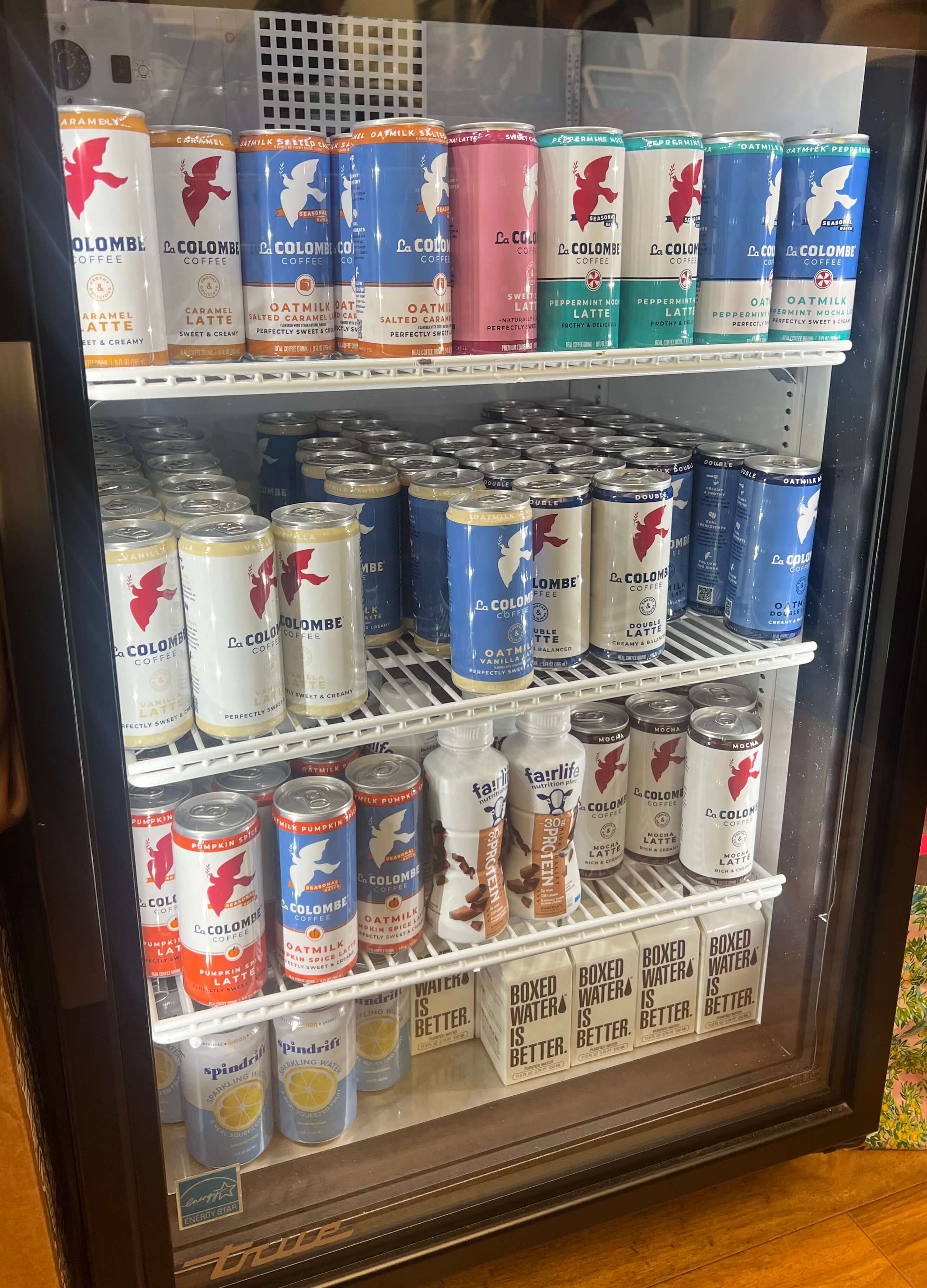Karen Shi ’27 | Vivian Zhang ’27
From fueling morning activity to stimulating focus for a late-night assignment, caffeine rides the fine line between an integral productivity enhancer and a glorified drug. Widely regarded as a favorable daily dose of energy, caffeine presents itself everywhere from the school store to the local Starbucks and beyond. However, inordinate amounts of anything can lead to harm.

Photo courtesy of Carter Yearley ’27
Tragedy struck when UPenn student Sarah Katz passed away after consuming a Charged Lemonade from Panera Bread, containing more caffeine than a Red Bull and a Monster combined. Katz, 21, who had a preexisting condition called QT syndrome and typically avoided caffeine, was misled by the drink’s labeling. This unfortunate incident raises the question of whether or not caffeine should be sold on-campus, along with the need for awareness of caffeine’s capabilities; especially in communities such as Episcopal Academy where it is easily accessible to upper school students, precautions to prevent such severe occurrences are imperative.
For some upper-schoolers, caffeine has become a regular pick-me-up in their day-to-day routines. Cai Parker, ’27, states, “I have around one to two cups daily.” On the other hand, Emily Rieck, ’27, explains that she has cut her caffeine intake to two sodas a week and does not drink any coffee. Caffeine not only acts as a source of energy but is something to look forward to in students’ busy schedules. Ellie Rheam, ’27, notes that “being at school with a very busy schedule, I think it is a good thing for students when they’re very tired. Sometimes you just need that little bit of pep.” In contrast, Ava Muñoz,’26, expresses, “It gets me motivated to keep working and get through my day, but I actually don’t need it to get through the day. I just like looking forward to it.” Subsequently, she explains that to her, caffeine is simply a placebo effect with no real substance.
Given the constant cycle of work and responsibilities, caffeine’s distinction as a treat serves as healthy encouragement. According to many students, caffeine isn’t something they rely on to get through the day, but rather a motivator due to its association with productivity. However, productivity and the circumstances that help best induce it differ for each student. Kyle Zhang, ’27, remarked that caffeine actually makes him “feel a little sleepy.” Likewise, to be productive, Rieck tries not to drink caffeine altogether. She shares, “If I want to be productive for a long period of time and focus on something specific, I wouldn’t have caffeine.”
Following the ingestion of caffeine and the period of elevated energy, there often comes the dreaded crash. Caffeine’s effectiveness stems from its interference with processes that control the sleep cycle; once metabolized, one may feel increasingly tired. Parker mentions, “I usually feel extremely energized after, but around an hour later I feel absolutely drained and exhausted.” As a person with insomnia, Parker often uses energy drinks as a means to stay awake, especially during busy times such as Tech Week. Additionally, Rheam brings up the direct issues of the overconsumption of caffeine. She says, “I think in general it can be addicting if you do it too much. And then for me personally, sometimes if I have too much, I become a little shaky.”
Many students at Episcopal and adolescents, in general, are not hesitant to consume caffeinated drinks despite some being well aware of its potential impacts on their body, but what might be the cause of the desire to drink it in the first place? Beyond enriched energy levels, Rieck expresses that a factor of caffeine consumption for her was perceived maturity. “When I was a kid, I used to take my mom’s coffee and chug it. But I think I was just trying to be mature and be like, ooh, coffee,” she explains. In a world where children are growing up faster and faster, the age for caffeine consumption is rapidly dropping. History teacher Mr. Wright reveals, “I didn’t start drinking coffee until I was 23 years old. So, I am shocked when I see freshmen drinking Starbucks in my class. I would not want my kids to be drinking coffee until they were of a certain age. But that’s up to me as a parent.” Similarly, when asked whether EA should continue selling caffeinated drinks, Lily McNamara, ’27, suggests, “Yes, but they should have a cap on how many you can have a day. I don’t think middle schoolers should be able to have it; however, I think high school or above is okay.” Many members of the community believe that there should certainly be a limit on who can purchase caffeine on campus, though it is ultimately under the parent’s discretion to enforce appropriate decisions for their children.
Evidently, much of the Upper School community enjoys drinking caffeine regularly whether it be for the needed push to vitality, the appeal of seeming sophisticated and more grown-up, or simply the taste of the beverage. While it is not detrimental in moderation, many have expressed concern over younger consumers having too much or developing a reliance on it. It is important to impose regulations—however, making wise decisions for yourself and your health is equally as important.